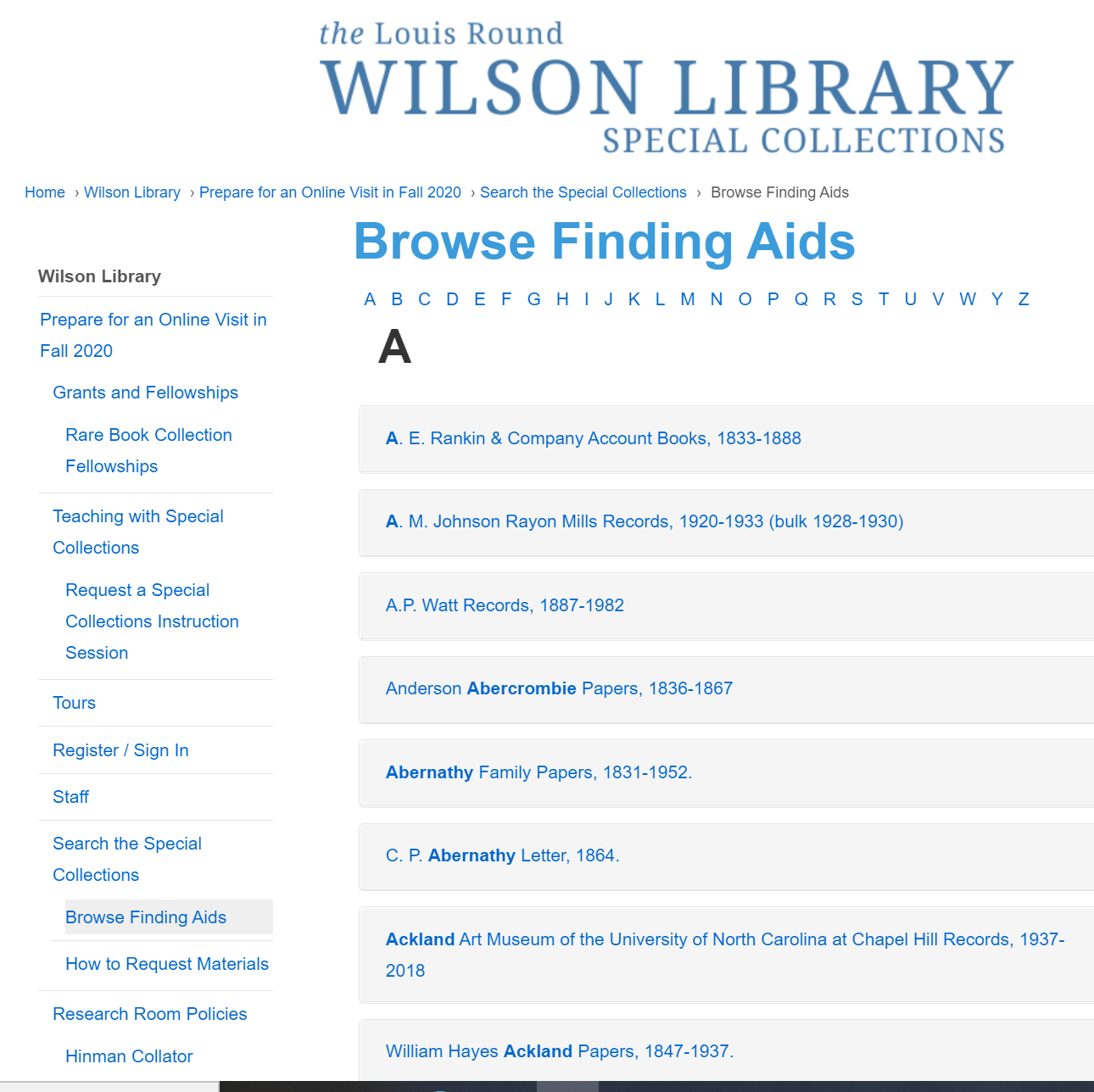When I first applied for departmental senior thesis funding early this spring, everyone was still uncertain about how long the effects of the COVID-19 pandemic would last. It seemed departmental administrators were optimistic: funding requests could still be made for summer travel. In my application, I detailed my intent to travel to university and state archives throughout the U.S. south for a thesis examining how antebellum Mississippi Valley planters conceptualized the idea of labor. But before I even heard back about whether I was to receive support, the department updated its funding parameters to prohibit summer travel and I had to redo my application in turn. My summer plans, of course, were not the first academic casualty of the strange 2020 world; nor would they be the last. Fortunately, though, there were ways to work around my newfound limitations: all of the archives that I wanted to visit offered services for resident librarians to scan and send materials from their collection, so I updated my application to ask for funds to pay for associated fees. Here, I’ll be sharing some tips for requesting archival materials to be scanned, which I hope will be helpful to any researcher unable to travel (pandemic or not).
Before making any requests, you should try and reach out to a librarian at the archive you are interested in, just to share your research focus and current project. Once they know what you are looking for, they will help you narrow down resources within their archive; as I have written before on this blog, librarians are truly research superheroes. On one occasion (which I have written about here) a librarian emailed me scans from an archive in South Africa for free. And, just this past month, a brief email exchange with a librarian from an archive I intended to visit at UNC Chapel Hill led to the librarian actually sending me a large portion of their pre-digitized collection, and pointing me to further online primary source databases I could access through Firestone’s website (on databases and remote research, see PCUR post by Rafi Lehmann here; this post will be especially helpful to those whose archives of interest are unable to send scans). These documents have formed the basis of my thesis research thus far.
If you cannot find much to work with without requesting scans, don’t fret: most research libraries, including Princeton’s own special collections, offer scanning services. Different libraries, though, might have varying policies on the quantity of documents able to be scanned, and at what cost. This information is usually pretty accessible on a library’s website; if not, you might want to try contacting library staff. The request fees may not seem to be a lot at first, often being less than a dollar per scan, but they add up quickly if you are asking for a large batch, and there are often additional processing fees. In fact, I ended up requesting more funding for scans than I had for a two-week research trip! With this in mind, I strongly suggest looking into different funding sources on the Student Activities Funding Engine (SAFE), and also visiting this page here for more information on Office of Undergraduate Research thesis funding opportunities this semester.
That said, you will likely need to request far fewer scans than I did, being that I was uncertain at that point exactly what I was looking for, and was hoping to request entire collections in bulk. I would recommend carefully browsing a library’s online catalog– especially its finding aids, if available– so you can pinpoint documents or collections you know you want to view (this is standard advice, anyway, if you were to be visiting the archive in person). A finding aid is a document describing and then listing the contents of a given collection. Sometimes even a cursory glance at one will tell you if the materials will be of use to you.

Additionally, be sure to carefully review pricing policies and any information about how long scans might take to arrive. Over the summer, some of the archives I wanted to order from were closed or working at reduced capacity due to COVID-19, and thus had request backlogs running several weeks. If something you want to request is critical to your project, then be sure to order it sooner rather than later.
As sad as it is that few researchers are able to visit the collections they need in person, there is still a robust network of librarians and online resources that can help you find the primary sources that you need. There is even some advantage to viewing these resources online– unlike in the archive, they are immediately accessible at all times, so you can skim through documents to assess their relevance before diving in (you might be hard-pressed to do this in an archive, where you can only have one document out at a given moment and your visit time is precious as it is). If you can’t go to the archive, there is not so much lost if you can bring the archive to you.
–Alec Israeli, Humanities Correspondent

